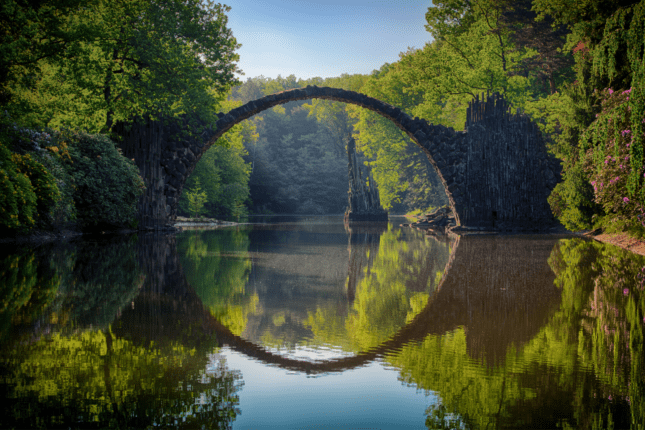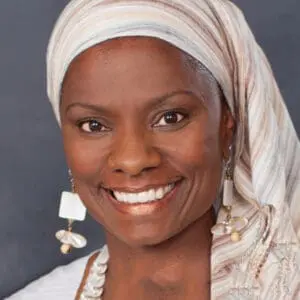Eight years ago, in 2016, the morning after the first election of President Trump, I started the session on mind-body medicine I’d been asked to teach to a group of healthcare professionals in Indiana. But gripped in fear for my daughters, African-immigrant husband, Muslim community, and Black people, I collapsed into an exhausted, snotty-faced ball in front of them. The group members, most of whom likely had different political views than me, got up from their chairs and offered hugs and support, not just for me but for all the people I represented. My sense of powerlessness lifted, I was able to breathe, and a healing process began.
While my anger and deep disappointment over the outcome of the election remained, I learned to seek beauty and connection in my work with people I could’ve easily considered others: white military vets, police officers, former gang members, and incarcerated men who considered me (a Black Muslim woman) to be the other. Did it hurt to listen to their views? Absolutely. Was I uncomfortable? Often. Yet I knew my healing and my purpose was intertwined with this discomfort. And I found beauty in every heart assigned to my care.
Now, Donald Trump has been elected again, and the question therapists face again is, how are we going to build bridges that unite us and center love? And how are we going to do that when many of our clients, particularly Black women, feel as if their country has sent them a clear message: “You’re disposable.” Or as one client put it, “I feel like America has shown her ass again,” which was Black girl talk for “my heart’s broken.”
Don’t get me wrong; I know the disappointment of seeing your preferred candidate lose an election. I appreciate that many people believe they’ll suffer under one candidate or another. The fear of the unknown is daunting. And the pain of political polarization is real. This can cause some of us to want to turn our backs on family members, colleagues, friends, and associates who vote differently from us.
I’ve heard many people, including my therapist friends and colleagues, say, “I don’t want to be in relationship with those people.” But we need to ask ourselves, Is what we’re doing and saying in our lives and in our sessions contributing to the separation and polarization in our nation, or easing it?
Many people voted in this election based on a strong emotion and a single issue. Instead of looking at the bigger picture, they narrowly focused on one thing that upset them. Now that the election is over, we need to ask ourselves, How do we move toward what Rumi called “the meadow in the middle”? How do we disagree about important things that feel central to our identity and still come together around what we agree on? More importantly, how do we make a conscious decision to center ourselves in love? It’s not an easy choice, but it’s the only choice.
Do we, the healers, have the capacity to be in relationship with someone we disagree with? Can we be curious about what might inspire someone to feel loyal toward a person they don’t like or trust? Can we accept that we may never understand someone?
I often ask people to tell me about what they worship. From my perspective, what we worship shapes and orients us more than any professed religion. Does a client worship their attachment to a candidate? Do they worship their own well-being? Do they worship forgiveness, love, and connection?
As we transition from the shock of our candidate losing the election or the elation of our candidate winning, I hope we think about whether what we do or say serves love. It’ll take time before we can pause rather than disparage those we disagree with. But curiosity and proximity will serve us far better than avoidance and separation. Being in relationship with those who are different from us can be difficult, but it’s what we need. We can’t be afraid to get close to the others, whoever that is for you. Proximity is what allows the light to come through.
“If you live in blame and judgment,” my spiritual teacher once told me, “you’ll become what you judge.” That prospect terrifies me far more than this election. If we’re waiting for the government to create bridges for us and support connection and unity, we may be waiting a long, long time. It’s up to us to make the bridges and inhabit a space of greater acceptance and love. I’m up for the challenge. I hope you are too.
Sabrina N'Diaye
Sabrina N’Diaye, PhD, LCSW-C, is an integrative psychotherapist, storyteller, and peacebuilder, based in Baltimore, MD. Her first book is Big Mama Speaks: Love Lessons from a Harlem River Swan.












